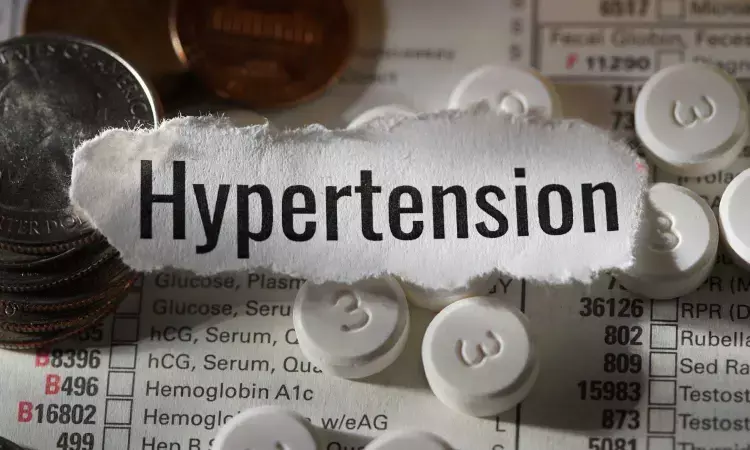- Home
- Medical news & Guidelines
- Anesthesiology
- Cardiology and CTVS
- Critical Care
- Dentistry
- Dermatology
- Diabetes and Endocrinology
- ENT
- Gastroenterology
- Medicine
- Nephrology
- Neurology
- Obstretics-Gynaecology
- Oncology
- Ophthalmology
- Orthopaedics
- Pediatrics-Neonatology
- Psychiatry
- Pulmonology
- Radiology
- Surgery
- Urology
- Laboratory Medicine
- Diet
- Nursing
- Paramedical
- Physiotherapy
- Health news
- Fact Check
- Bone Health Fact Check
- Brain Health Fact Check
- Cancer Related Fact Check
- Child Care Fact Check
- Dental and oral health fact check
- Diabetes and metabolic health fact check
- Diet and Nutrition Fact Check
- Eye and ENT Care Fact Check
- Fitness fact check
- Gut health fact check
- Heart health fact check
- Kidney health fact check
- Medical education fact check
- Men's health fact check
- Respiratory fact check
- Skin and hair care fact check
- Vaccine and Immunization fact check
- Women's health fact check
- AYUSH
- State News
- Andaman and Nicobar Islands
- Andhra Pradesh
- Arunachal Pradesh
- Assam
- Bihar
- Chandigarh
- Chattisgarh
- Dadra and Nagar Haveli
- Daman and Diu
- Delhi
- Goa
- Gujarat
- Haryana
- Himachal Pradesh
- Jammu & Kashmir
- Jharkhand
- Karnataka
- Kerala
- Ladakh
- Lakshadweep
- Madhya Pradesh
- Maharashtra
- Manipur
- Meghalaya
- Mizoram
- Nagaland
- Odisha
- Puducherry
- Punjab
- Rajasthan
- Sikkim
- Tamil Nadu
- Telangana
- Tripura
- Uttar Pradesh
- Uttrakhand
- West Bengal
- Medical Education
- Industry
Azelnidipine Demonstrates Efficacy in Lowering BP in Indian Patients with Hypertension: Study

Hypertension (HTN) is a prevalent cardiovascular condition with significant morbidity and mortality worldwide. Azelnidipine, a selective calcium channel blocker, has shown promise in lowering blood pressure (BP) in hypertensive patients. Azelnidipine is known for its potent antihypertensive effects and has been widely used in the management of mild to moderate hypertension. However, its effectiveness in Indian patients has not been extensively studied.
A recent retrospective real-world evidence (RWE) study conducted in Indian patients aimed to evaluate the efficacy of azelnidipine in this population.This study was published in the Journal Of Association Of Physicians Of India by Chetan Shah and colleagues. The retrospective cohort study included 882 Indian patients aged 18 years or older with mild to moderate hypertension who had been on azelnidipine treatment for the last 3 months.
Data were collected on changes in systolic and diastolic BP from baseline to subsequent visits (4 and 12 weeks), as well as the proportion of patients achieving target BP levels.The key findings of the study were:
Mean reduction in systolic/diastolic BP from baseline to 12 weeks: 13.92/7.91 mm Hg (p < 0.0001)
Mean reduction in systolic/diastolic BP in newly diagnosed HTN patients: 11.77/7.43 mm Hg (p < 0.0001)
Mean reduction in systolic/diastolic BP in known cases of HTN: 16.50/8.48 mm Hg (p < 0.0001)
Mean reduction in systolic/diastolic BP in diabetic patients: 15.35/8.69 mm Hg (p < 0.0001)
Proportion of patients achieving target BP of <130/80 mm Hg: 4.99%
Proportion of patients achieving target BP of <140/90 mm Hg: 46.26%
Mean change in heart rate (HR) from baseline: reduction of 5.22 beats/minute
The study findings suggest that azelnidipine is effective in lowering BP and HR in Indian patients with mild to moderate hypertension. With significant reductions observed in BP and HR, azelnidipine demonstrates potential as an effective antihypertensive drug in this population. These results highlight the importance of considering azelnidipine as a treatment option for hypertension management in Indian patients.
Reference:
Dr Riya Dave has completed dentistry from Gujarat University in 2022. She is a dentist and accomplished medical and scientific writer known for her commitment to bridging the gap between clinical expertise and accessible healthcare information. She has been actively involved in writing blogs related to health and wellness.
Dr Kamal Kant Kohli-MBBS, DTCD- a chest specialist with more than 30 years of practice and a flair for writing clinical articles, Dr Kamal Kant Kohli joined Medical Dialogues as a Chief Editor of Medical News. Besides writing articles, as an editor, he proofreads and verifies all the medical content published on Medical Dialogues including those coming from journals, studies,medical conferences,guidelines etc. Email: drkohli@medicaldialogues.in. Contact no. 011-43720751


